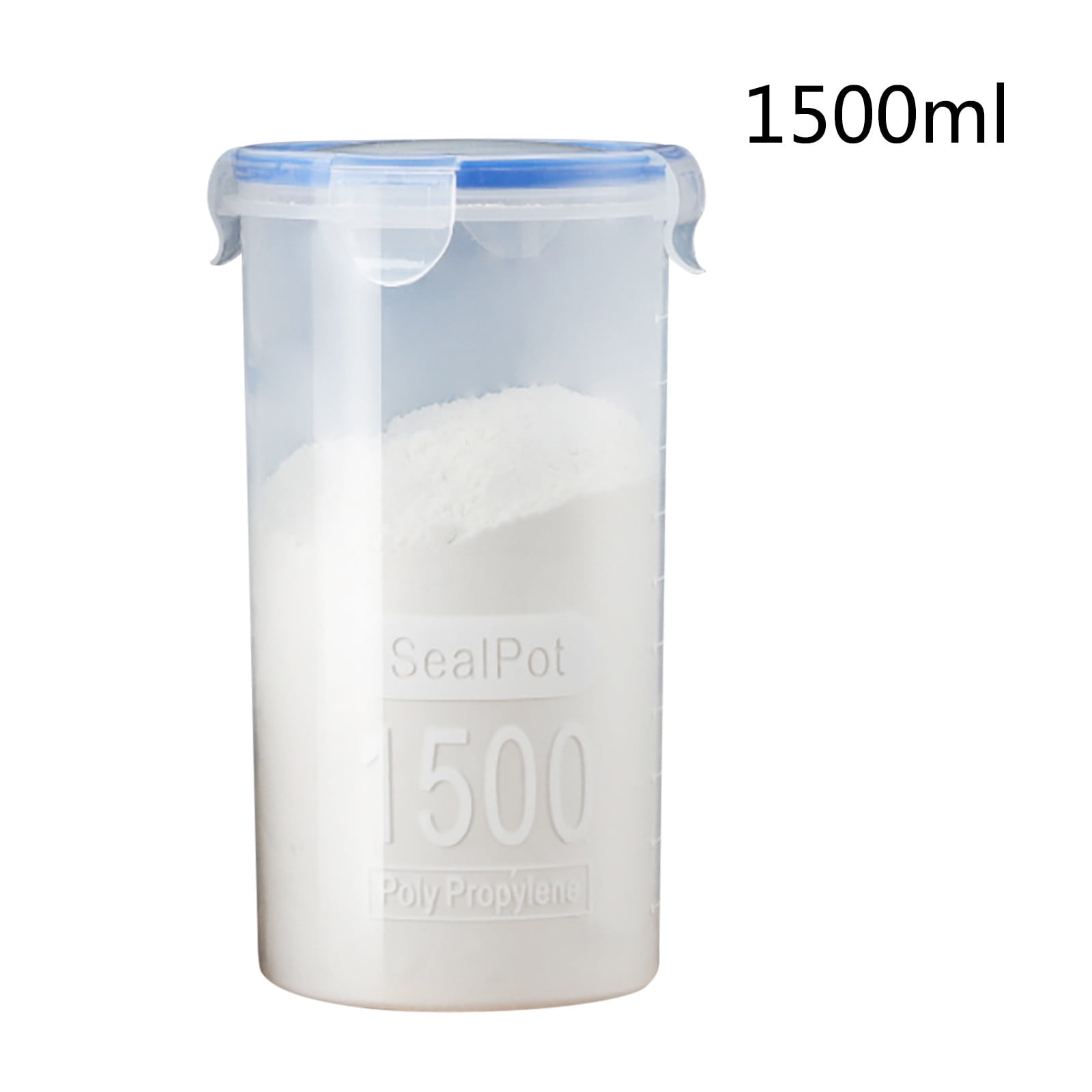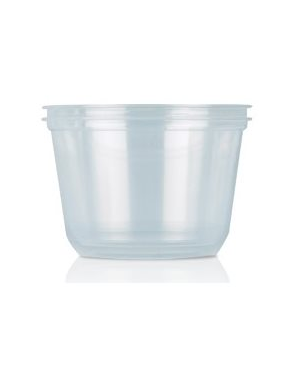A Comprehensive Overview to the Various Kinds Of Mass Plastic Containers Available Today
Bulk plastic containers play an important function in various industries, offering solutions for storage space and transportation. Their varied kinds provide to various demands, from rigid options for solid products to adaptable containers accommodating various shapes. Each type offers distinctive benefits, making it necessary to comprehend their attributes and applications. As sectors advance, so do the demands for efficient container services. What elements should one think about when picking the ideal mass container?
Review of Mass Plastic Containers

Kinds Of Mass Plastic Containers
Mass plastic containers can be found in various forms, each matched to specific applications. Stiff mass containers, flexible bulk containers, and intermediate mass containers represent the key classifications, each offering unique advantages. Recognizing these types is important for picking the best container for moving and saving products.

Rigid Bulk Containers
Inflexible mass containers are critical for efficient storage and transportation of different materials across markets. These containers are usually built from resilient plastics, enabling them to stand up to rough handling and ecological problems. They can be found in numerous sizes and shapes, consisting of containers, totes, and drums, making them appropriate for keeping whatever from granular materials to fluids. Stiff containers typically include strengthened walls and safe lids, making certain the materials continue to be shielded throughout transit. Their stackable layout takes full advantage of storage space, making them ideal for stockrooms and producing centers. Additionally, several stiff bulk containers are recyclable and reusable, adding to sustainability initiatives. In general, their effectiveness and adaptability make rigid mass containers an essential part in supply chain operations.
Flexible Mass Containers
Flexible mass containers, often described as flexible intermediate bulk containers (FIBCs), work as a versatile option for saving a range and transporting of completely dry materials. These containers are commonly made from woven polypropylene and are created to be lightweight yet solid, enabling reliable handling and stacking. Their adaptability enables them to suit different forms and sizes, making them suitable for products varying from grains to chemicals. FIBCs can be geared up with features such as spouts for easy filling and discharge, along with safety finishings for boosted longevity. Additionally, they are recyclable and recyclable, adding to sustainable techniques in industries like farming, food handling, and construction. Overall, versatile mass containers provide a effective and cost-efficient option for bulk product management.
Intermediate Mass Containers
Intermediate bulk containers (IBCs) are essential for the effective transportation and storage of liquids and granular products throughout different markets. These containers commonly have an ability ranging from 275 to 330 gallons and are developed for simple taking care of and piling. Made from sturdy products like high-density polyethylene or steel, IBCs give superb defense versus contamination and environmental elements. Their design includes attributes such as an integrated pallet for forklift accessibility and a detachable top for easy filling and cleansing. IBCs are extensively made use of in chemical, food, and pharmaceutical markets, making sure compliance with safety laws. Their adaptability and reusability make them an affordable service for bulk storage space and transport, adding to provide chain efficiency and sustainability.
Attributes and Benefits of Mass Plastic Containers
Mass plastic containers are vital tools in various sectors, providing a combination of resilience and usefulness. These containers are built from premium products, making them immune to impacts, chemicals, and ecological elements. This effectiveness assurances product security during storage space and transportation.
In addition, bulk plastic containers are light-weight, helping with ease of managing and decreasing shipping prices. Their stackable design takes full advantage of storage space effectiveness, permitting enhanced warehouse room. Many versions feature secure covers or closures, offering an impermeable seal that prevents and protects materials contamination.
Furthermore, mass plastic containers are often recyclable and recyclable, contributing to lasting techniques. Their flexibility permits for a wide array of applications, from food storage to commercial use, improving their worth across fields. Companies take advantage of the lengthy life expectancy and low upkeep requirements of these containers, making them a cost-effective remedy for both short-term and lasting requirements.
Industries That Make Use Of Mass Plastic Containers
Numerous industries take advantage of the usage of mass plastic containers, each leveraging their special homes for particular applications. The food and beverage market counts on these containers for risk-free storage space and transportation of products, while the chemical manufacturing industry utilizes them for dealing with dangerous materials. Furthermore, the pharmaceutical distribution needs stress the significance of sturdiness and tidiness in product packaging options.
Food and Beverage Industry
As the need for effective and safe storage remedies remains to increase, the food and beverage industry increasingly relies upon bulk plastic containers for their functional demands. These containers supply robust, light-weight, and flexible options for saving components, finished items, and waste materials. Made from food-grade products, they guarantee conformity with health and wellness and safety criteria. Different layouts, such as stackable containers and tote boxes, maximize area during transport and storage, boosting logistical effectiveness. Additionally, the openness of some mass containers permits easy supply management, reducing the danger of putridity. With the sector's emphasis on sustainability, many suppliers more info here are now supplying recyclable and recyclable choices, straightening with environment-friendly techniques while satisfying the high needs of food safety and hygiene.
Chemical Production Industry
The chemical production industry counts heavily on mass plastic containers for the efficient and risk-free storage space of basic materials, intermediates, and completed items. These containers are developed to stand up to numerous chemicals, guaranteeing that harmful materials do not leakage or break down the container itself. Common types consist of high-density polyethylene (HDPE) and polypropylene containers, which provide superb chemical resistance and sturdiness. Their lightweight nature and stackable layout facilitate transport and storage, optimizing area in making facilities. In addition, many bulk plastic containers include features such as tamper-evident seals and easy-to-read labeling, boosting safety and compliance with market policies. On the whole, bulk plastic containers are important to the chemical production procedure, giving dependable services for managing varied compounds.
Pharmaceutical Distribution Needs
Pharmaceutical distribution counts on mass plastic containers to fulfill rigorous safety and security and governing requirements. These containers are essential for moving and saving a selection of pharmaceutical products, consisting of energetic pharmaceutical active ingredients (APIs) and completed medicines. Their design guarantees protection versus contamination, wetness, and light, preserving the integrity of delicate materials. Additionally, mass plastic containers are certified with industry requirements such as Good Production Practices (GMP) and are commonly made from materials that are FDA-approved. The usage of these containers improves efficiency in the supply chain, permitting risk-free, large-scale circulation while minimizing waste. Business in the pharmaceutical sector focus on using sturdy, watertight, and tamper-evident containers to guarantee item safety and top quality throughout the logistics process.
Considerations for Choosing the Right Container
When picking the proper bulk plastic container, numerous elements must be meticulously evaluated to assure excellent performance and safety. The nature of the products to be stored is extremely important; compatibility with the container's material can affect integrity and safety and security. Bulk Plastic Containers. In addition, the container's size and form must line up with the storage space and transportation needs, assuring reliable space use
Load capability is one more crucial consideration, as it ought to fit the weight of materials without risk of damage or failing. The design functions, such as venting or lids, can affect usability and access. Conformity with market policies is important, particularly in fields like pharmaceuticals, where safety requirements are rigorous.
The anticipated life-span and resilience of the container ought to be examined to verify it fulfills the operational demands without constant substitute. By examining these factors, one can select the most suitable mass plastic container for details applications.
Ecological Influence and Sustainability
As companies progressively prioritize sustainability, the environmental impact of bulk plastic containers has actually come under scrutiny. These containers, typically made from materials such as polyethylene or polypropylene, contribute significantly to plastic waste if not taken care of effectively. Their manufacturing includes the usage of fossil gas, which can cause boosted greenhouse gas discharges. Nevertheless, improvements in recycling technology and the development of eco-friendly choices are aiding to alleviate these issues.
Numerous manufacturers are embracing practices that emphasize the usage of recycled materials, consequently decreasing the need for virgin plastics. The toughness of bulk plastic containers likewise contributes; they are created to be recycled several times, which can lessen their general environmental impact when contrasted to single-use choices. Inevitably, the market encounters the difficulty of stabilizing functionality with eco-friendly responsibility, making review sustainable techniques necessary for the future of bulk plastic containers.
Best Practices for Storage Space and Transport
Effective storage space and transportation of bulk plastic containers greatly influence both functional performance and sustainability. To make best use of area, companies should pile containers firmly, guaranteeing stability and protecting against damage. Proper labeling is necessary for very easy identification, which enhances access procedures. Additionally, preserving a tidy and well organized storage space location reduces the risk of contamination and improves safety and security.
For transport, selecting the best automobile is essential; containers ought to be protected to prevent moving during transit. Business must additionally consider using pallets to help with simpler loading and discharging. Routine assessments of containers for deterioration can stop expensive replacements.
Temperature control is one more vital facet, as severe problems can jeopardize the integrity of the plastic. Lastly, training personnel on best practices for handling and transport warranties conformity and promotes a culture of safety. By executing these finest practices, businesses can improve their functional performance while adding to ecological sustainability.
Often Asked Concerns
How Do I Tidy Bulk Plastic Containers Effectively?
To tidy bulk plastic containers properly, one must rinse them with cozy water, make use of a moderate detergent and scrub with a soft brush. Wash thoroughly, after that enable to air completely dry totally before storage space or reuse.
What Is the Life Expectancy of Bulk Plastic Containers?
The life expectancy of bulk plastic containers commonly varies from 5 to 10 years, depending upon the product, usage, and ecological conditions. Appropriate upkeep and storage can considerably extend their functionality and durability gradually.
Can Mass Plastic Containers Be Customized?

Do Mass Plastic Containers Have Warranty Options?

Exist Rules for Utilizing Bulk Plastic Containers?
Yes, regulations exist for using mass plastic containers, largely concentrated on security, environmental influence, and product conformity. These regulations ensure that containers meet sector requirements and appropriate for transferring numerous compounds safely and successfully.
Inflexible bulk containers, flexible bulk containers, and intermediate mass containers stand for the key classifications, each offering distinct advantages. Versatile mass linked here containers, often referred to as versatile intermediate bulk containers (FIBCs), serve as a functional option for transporting and saving a selection of dry materials. The chemical manufacturing industry relies greatly on bulk plastic containers for the efficient and secure storage of raw materials, intermediates, and ended up products. plastic bulk containers. These containers are developed to hold up against different chemicals, ensuring that unsafe materials do not leakage or degrade the container itself. Additionally, bulk plastic containers are certified with market standards such as Excellent Manufacturing Practices (GMP) and are usually made from products that are FDA-approved